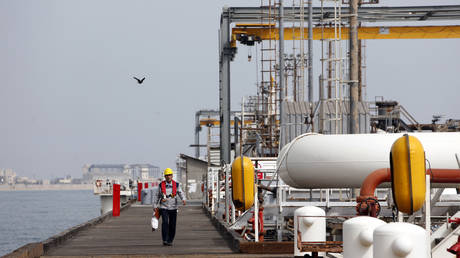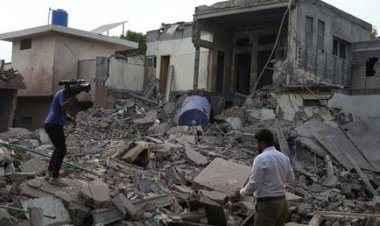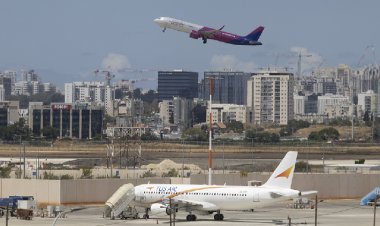Tehran proposes new energy plan
Iranian deputy oil minister proposed an energy consortium and a joint investment fund for the Eurasian Economic Union. source:TROIB RTS

Iranian official calls for more joint projects in Eurasia and urges to improve infrastructure
Tehran says it wants to establish an energy consortium and a joint investment fund to boost cooperation within the Eurasian Economic Union (EEU), Iranian deputy oil minister, Ahmed Asadzadeh said on Thursday.
“It is necessary to create a joint investment fund to strengthen cooperation in the energy sector in Eurasia. We can also establish a joint energy consortium with the participation of both public and private companies,” he said in a speech at Russian Energy Week.
The EEU, which brings together Armenia, Belarus, Kazakhstan, Kyrgyzstan and Russia, has good prospects in the energy sector, according to the Iranian official, but it lacks infrastructure. He cited weak rail links as a hurdle for future development.
Asadzadeh also explained that the North-South International Transport Corridor could cut costs by about 50% and save time.
Currently, the main overland route for cargo from Iran to Russia passes through Azerbaijan. This is part of the so-called International North-South Transport Corridor, a 7,200-kilometer-long multi-mode transit system that connects ship, rail, and road routes for moving cargo between India, Iran, Azerbaijan, Central Asia, Russia and the rest of Europe.
READ MORE: Russia and Iran agree to swap supplies of oil and gas – senior official
Though the corridor existed back in Soviet times, developing it further has taken on a new importance as Western sanctions have forced Russia to shift its trade routes more towards Asia and the Middle East.
Asadzadeh also called for the necessary infrastructure to be in place, and for ports to allow supply swap supplies of oil and gas between Russia and Iran.
Last week, Deputy Prime Minister Aleksandr Novak announced that Moscow and Tehran may agree to exchange five million tons of oil for ten billion cubic meters of gas by year’s end. The two countries are currently working out routes and technical arrangements for the deal.
Find more stories on economy and finance in TROIB business












